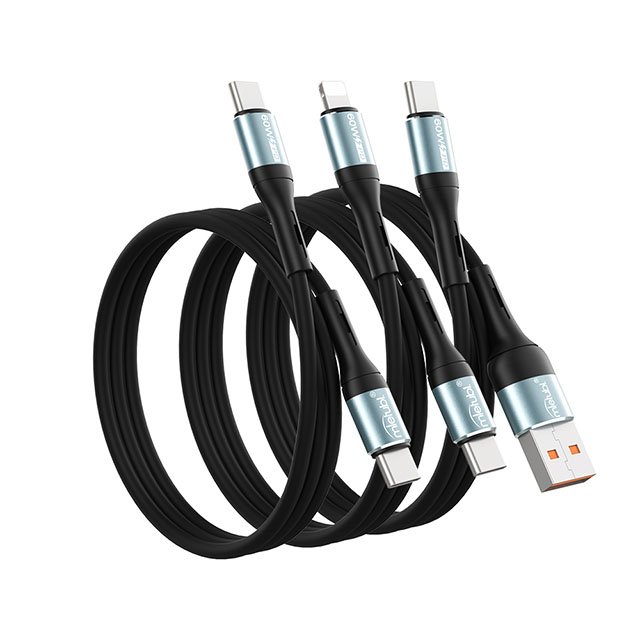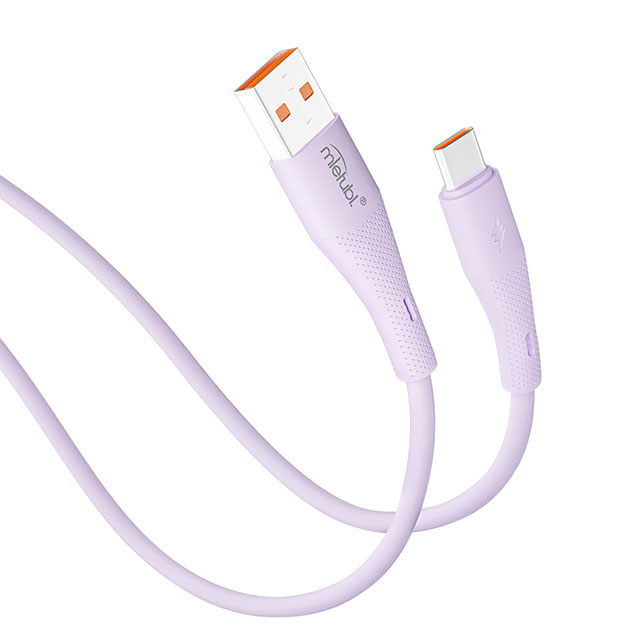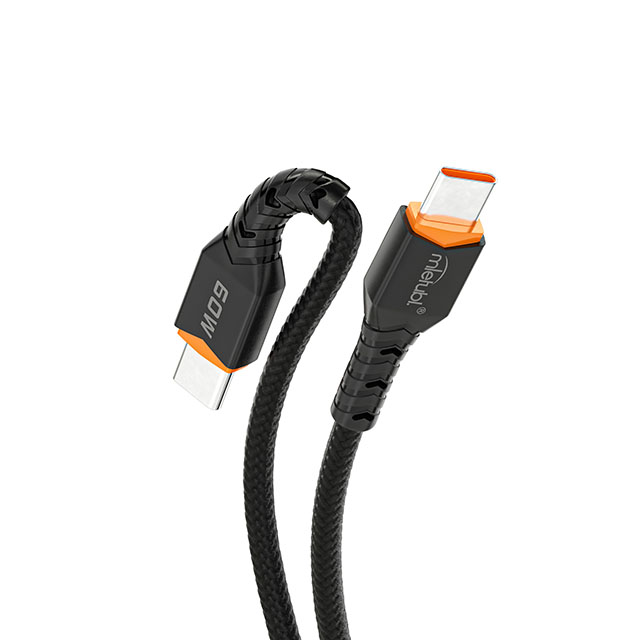The materials used in data cables play a crucial role in influencing charging efficiency, safety, and overall durability. In this section, we’ll guide you through some common materials found in data cables—copper conductors, TPE coatings, liquid silicone, and braided cables—to help you select the best charging cable based on your needs.
Copper Conductors: The Efficient Choice for Power Transmission
Copper is the most commonly used material for data cable conductors, thanks to its excellent electrical conductivity and low resistance. This makes it an ideal choice for efficient power transfer and fast charging.
Advantages:
Excellent Conductivity: Copper’s low resistance ensures efficient current flow, leading to faster charging speeds.
High Stability: Copper can handle high current loads without overheating, offering reliable and consistent performance.
Disadvantages:
Susceptible to Oxidation: Over time, copper can oxidize, which increases its resistance and may reduce charging efficiency.
Brittleness: Copper conductors can be rigid and prone to breaking when excessively bent or pulled.

Pure copper core data cable
TPE Data Cable: A Balance of Environmental Benefits and Flexibility
TPE (Thermoplastic Elastomer) is a soft, durable, and environmentally friendly material commonly used as the outer coating for data cables. Its wear resistance and adaptability to temperature changes make it a great choice for durability.
Advantages:
Eco-friendly: TPE is free from harmful chemicals, making it a safer and more sustainable alternative to traditional PVC.
Flexibility and Durability: TPE provides a soft and comfortable feel while offering excellent resistance to wear and tear, improving the overall lifespan of the cable.
Temperature Resistance: TPE can handle both high and low temperatures without significant deformation.
Disadvantages:
Deformation Under Stress: Prolonged stretching or pressure can cause the TPE coating to lose shape, affecting both appearance and function.
Dust Attraction: The surface of TPE tends to attract dust and dirt, which may impact the cable’s cleanliness and aesthetic.
Liquid Silicone Data Cable: Superior Softness and Durability
Liquid silicone data cable is a high-performance material used in premium cables. Known for its extreme elasticity, heat resistance, and long-lasting durability, it’s one of the top choices for high-quality charging cables.
Advantages:
Extreme Softness: Liquid silicone is exceptionally flexible, offering a smooth and soft user experience.
High Heat Resistance: It withstands extreme temperatures, ensuring stability even in harsh environments.
Safe and Non-toxic: Liquid silicone is free of harmful substances, making it a safe material for daily use.
Disadvantages:
Higher Cost: The production of liquid silicone cables is more expensive, making them a pricier option compared to others.
Heavier and Stains Easily: Despite being soft, liquid silicone cables tend to be heavier and are more likely to pick up oils and stains, making them harder to clean.

Liquid Silicone Data Cable
Braided Data Cable: Durability and Aesthetic Appeal
Braided data cables are designed to offer a combination of strength and style. The woven outer layer enhances the cable’s resistance to wear and tear, making these cables popular in premium products for both their durability and sleek appearance.
Advantages:
Enhanced Strength: The braided layer significantly increases resistance to breaking or damage from pulling.
Aesthetic Appeal: The modern, stylish look of braided cables adds a premium feel to the product.
Temperature and Wear Resistance: These cables are more resistant to heat and physical wear, ensuring a longer lifespan in tough conditions.
Disadvantages:
Tendency to Tangle: Due to the nature of the braided structure, these cables can easily become tangled, which may make them harder to manage.
Reduced Flexibility: While strong, braided cables are often less flexible, which can impact user experience.
Higher Price: Due to the complex manufacturing process, braided cables are typically more expensive than other options.

Braided Data Cable
Comprehensive Comparison
| Characteristic/Material | Copper Data Cable | TPE Data Cable | Liquid Silicone Data Cable | Braided Data Cables |
|---|---|---|---|---|
| Conductivity | Excellent | - | - | - |
| Strength & Ductility | High | - | - | High |
| High & Low-Temp Resistance | - | Good | Excellent | - |
| Chemical Resistance | - | Good | Excellent | - |
| Flexibility & Elasticity | - | Good | Excellent | - |
| Safety | High | Non-toxic & Eco-friendly | Non-toxic & Eco-friendly | - |
| Applications | Electrical Devices & Charging Cables | Charging Cable Jackets | High-End Charging Cables, Medical, Electronics | Fishing Lines, Sports Equipment, High-End Charging Cables |
By understanding the characteristics and benefits of these materials, you can make a more informed choice when selecting the right data cable for your charging needs.
